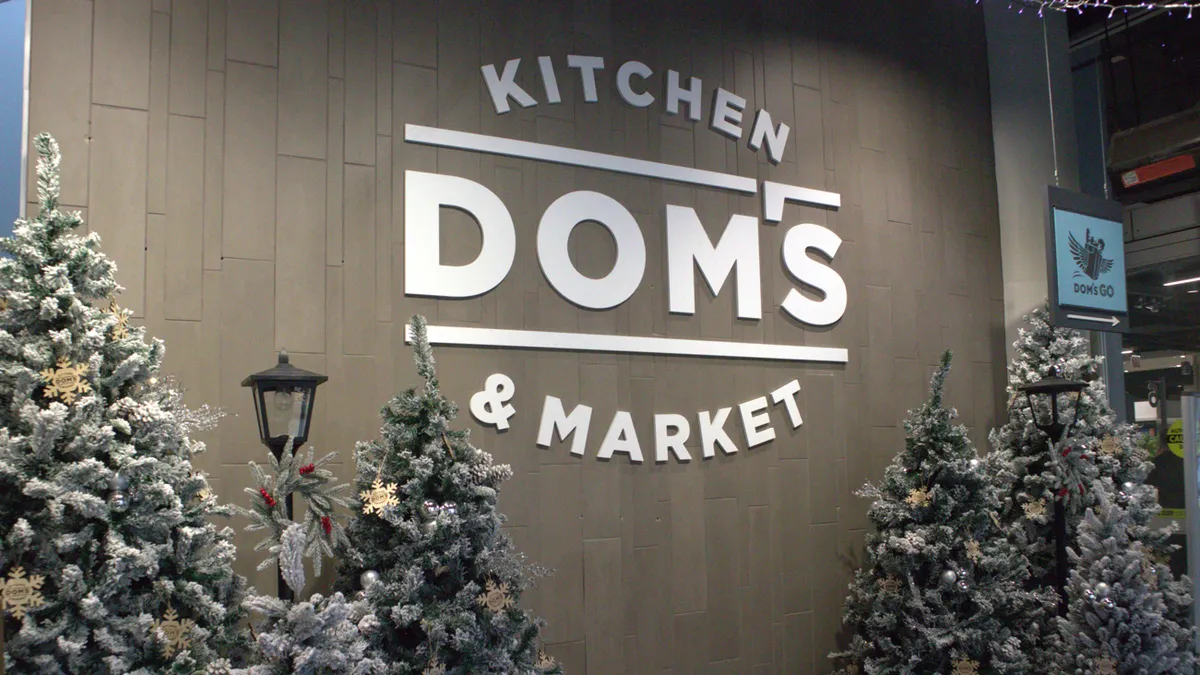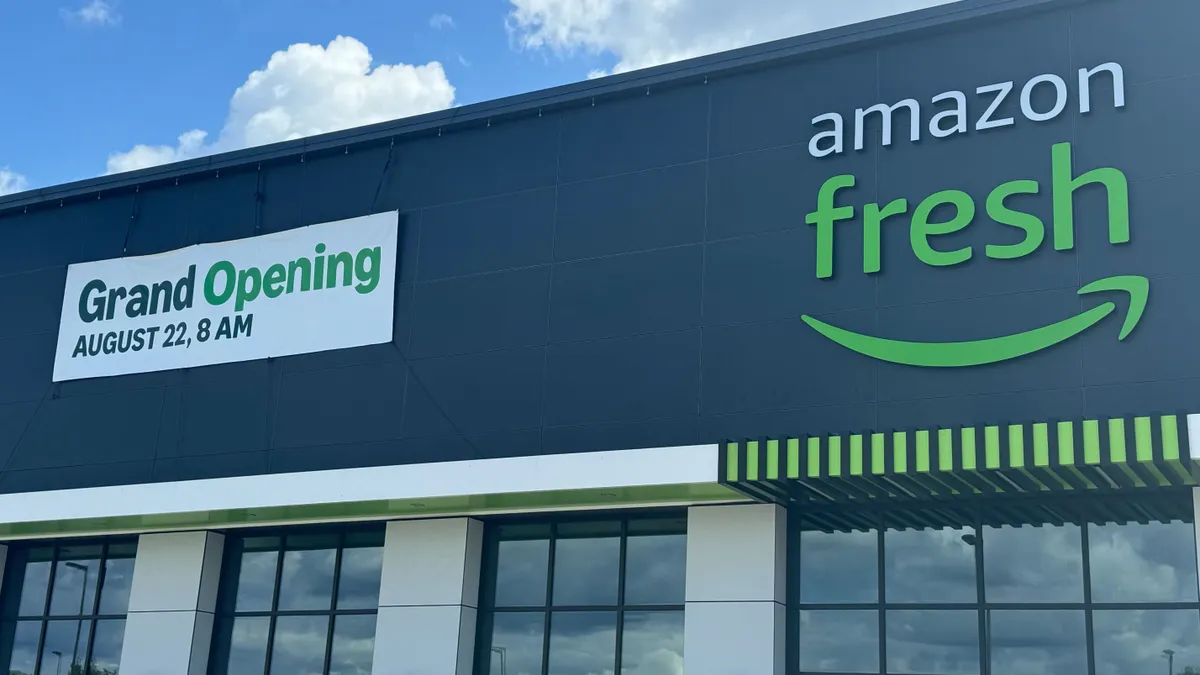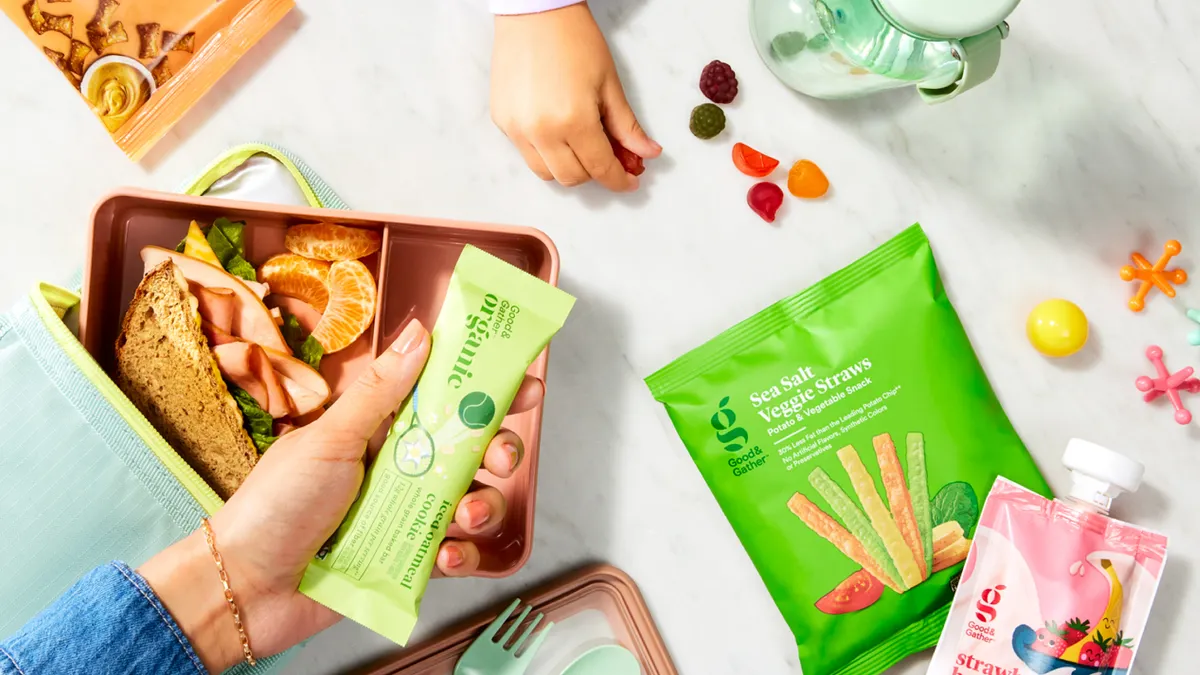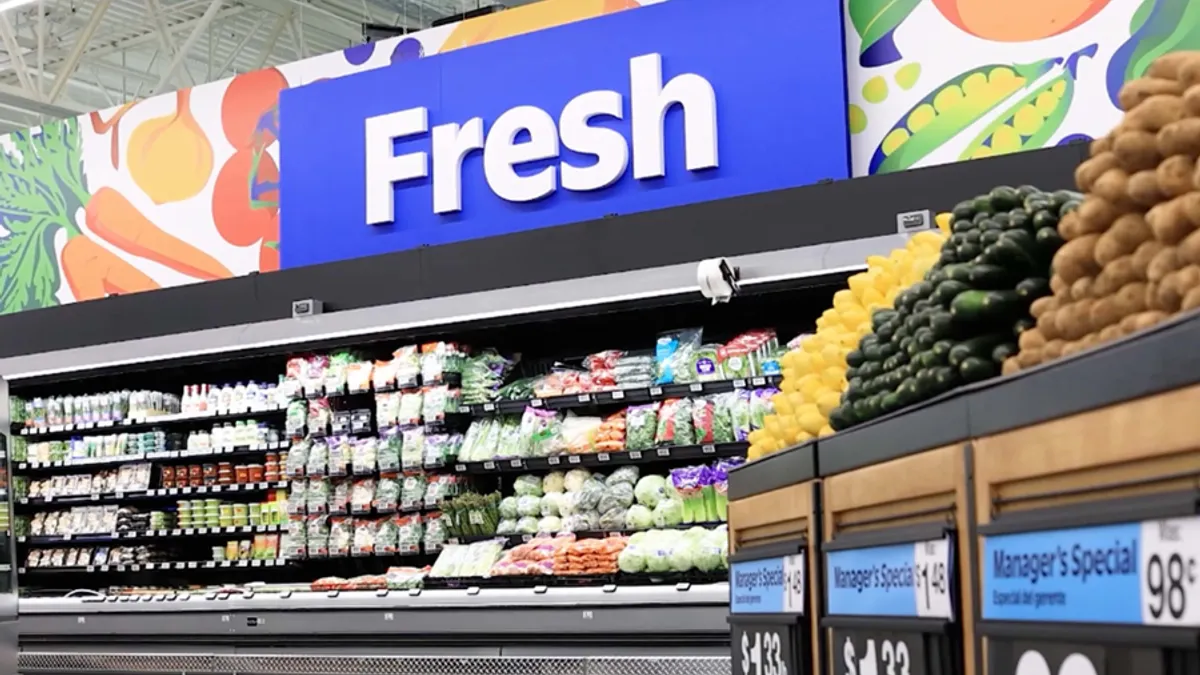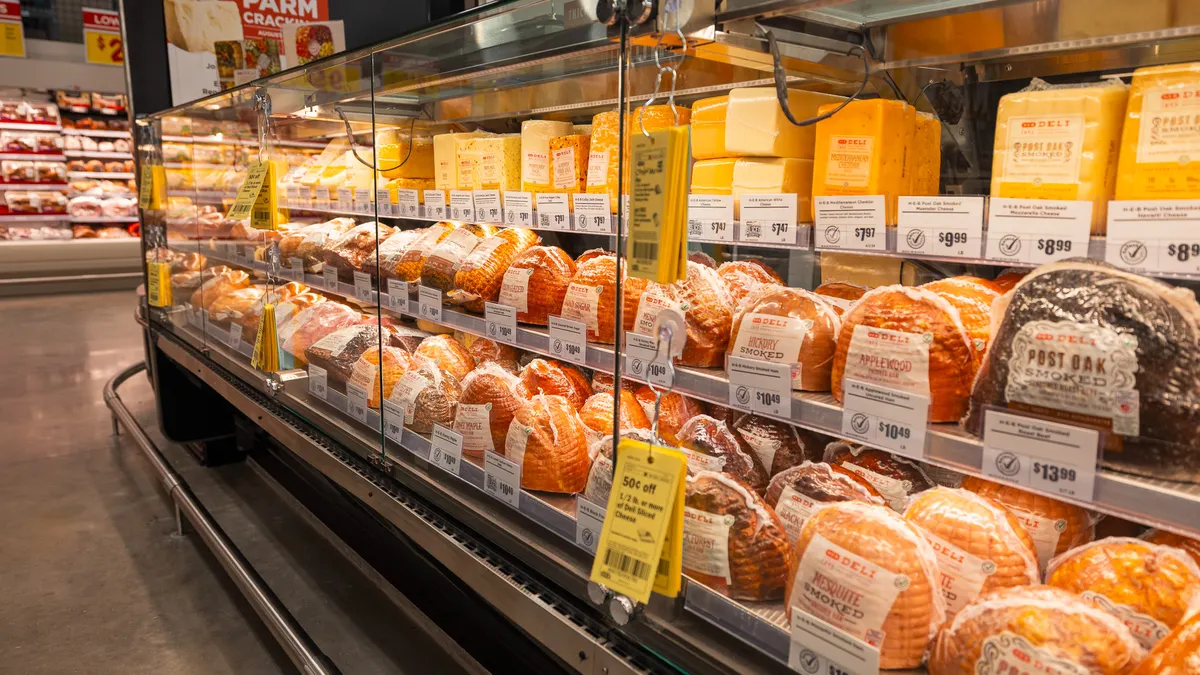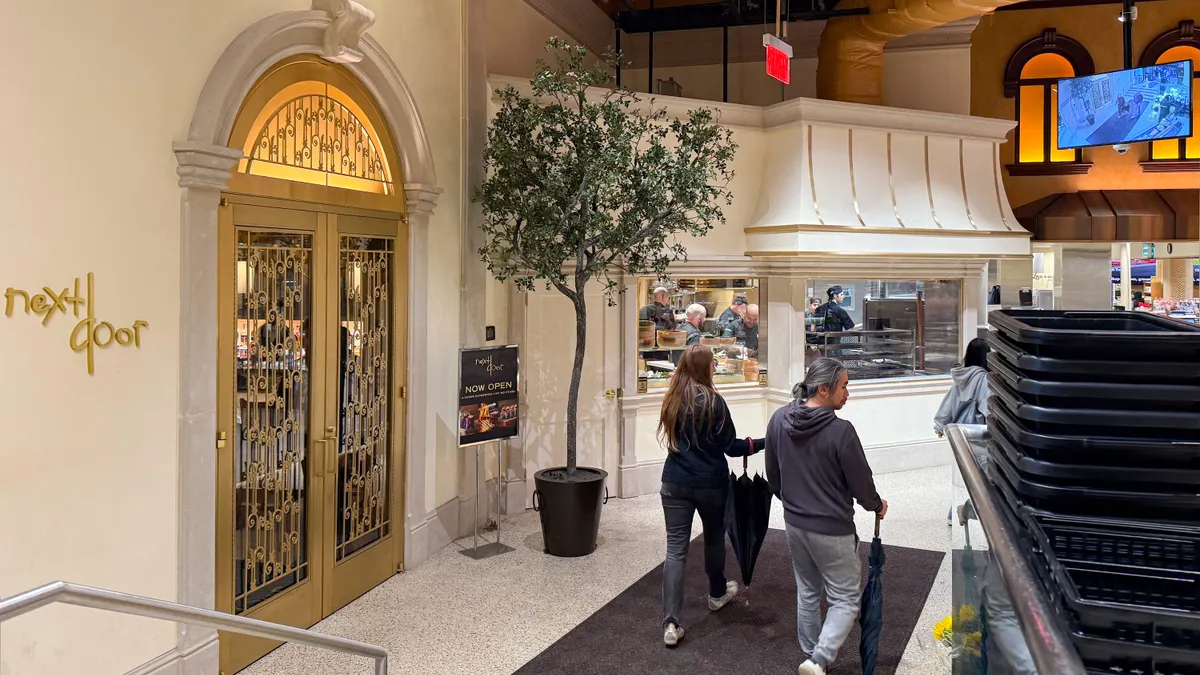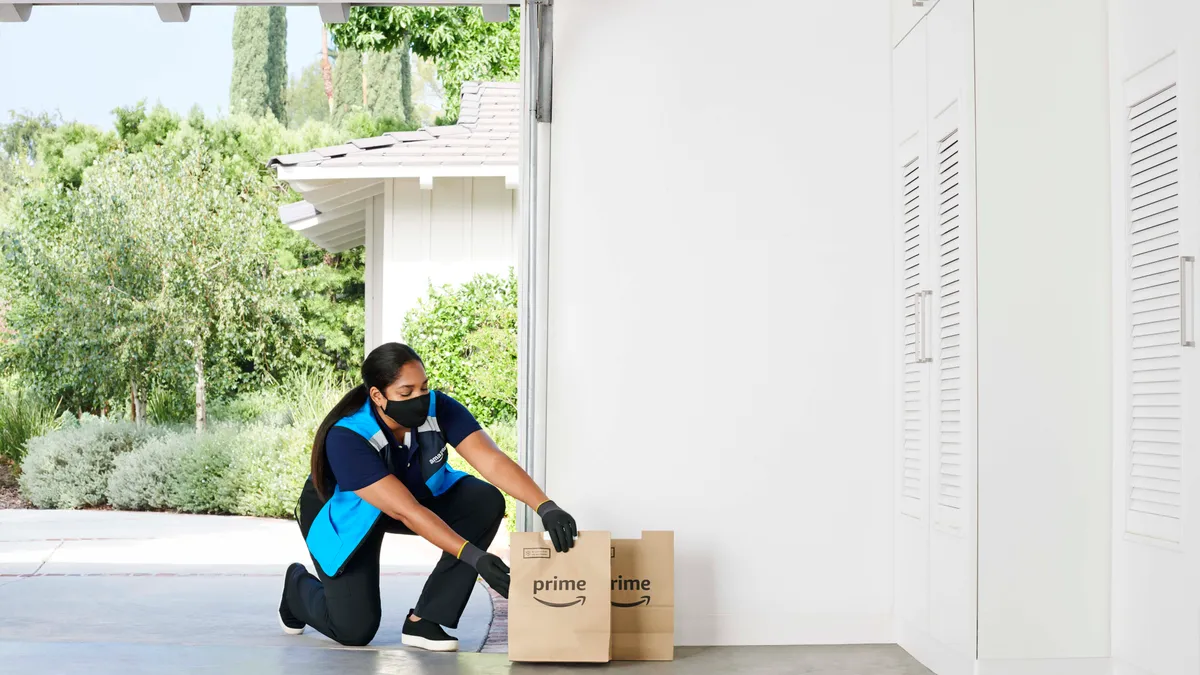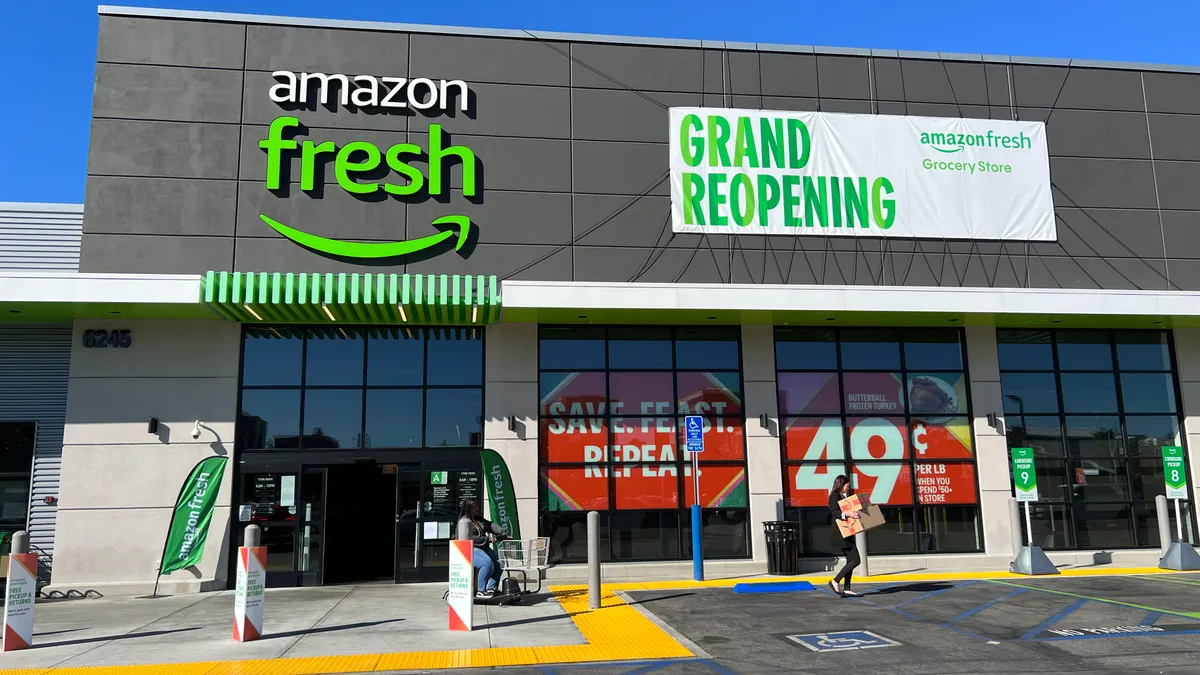A little more than two years after opening its first location, Dom’s Kitchen & Market is on a mission to scale its unique format that blends grocery shopping with restaurant dining in a small, accessible format.
To help it reach that goal, the startup recently named a new leader. Don Fitzgerald, who fully stepped into the Chicago grocery company’s CEO role in September after serving as co-CEO since 2021, is helming Dom’s with the support of grocery titan Bob Mariano, founder of the famed Mariano’s chain that Kroger bought. Mariano still serves as a co-chairman of Dom’s board of directors alongside investor Jay Owen.
The company also has plans in motion to accentuate its foodservice-focused model. As consumers grow increasingly comfortable with buying and eating their meals at grocery stores — a trend that Eataly, which recently named its first North American CEO, is capitalizing on — Dom’s aims to offer a “food experience” for shoppers, according to Fitzgerald.
“We don’t want to be thought about as a grocery store with food,” he said.
Part of defining this experience involves knowing where Dom’s fits into a food retail landscape that includes mass merchandisers, grocery chains and specialty stores. Customers currently do their “chore shopping” at Big Box retailers and then come to Dom’s for the “meal experience and the flavor innovation,” said Fitzgerald, a former senior executive at Dominick’s, Roundy’s and Mariano’s.
Dom’s sees an opportunity to serve as a high-quality and affordable meal alternative to restaurants, especially on weeknights, Fitzgerald said.
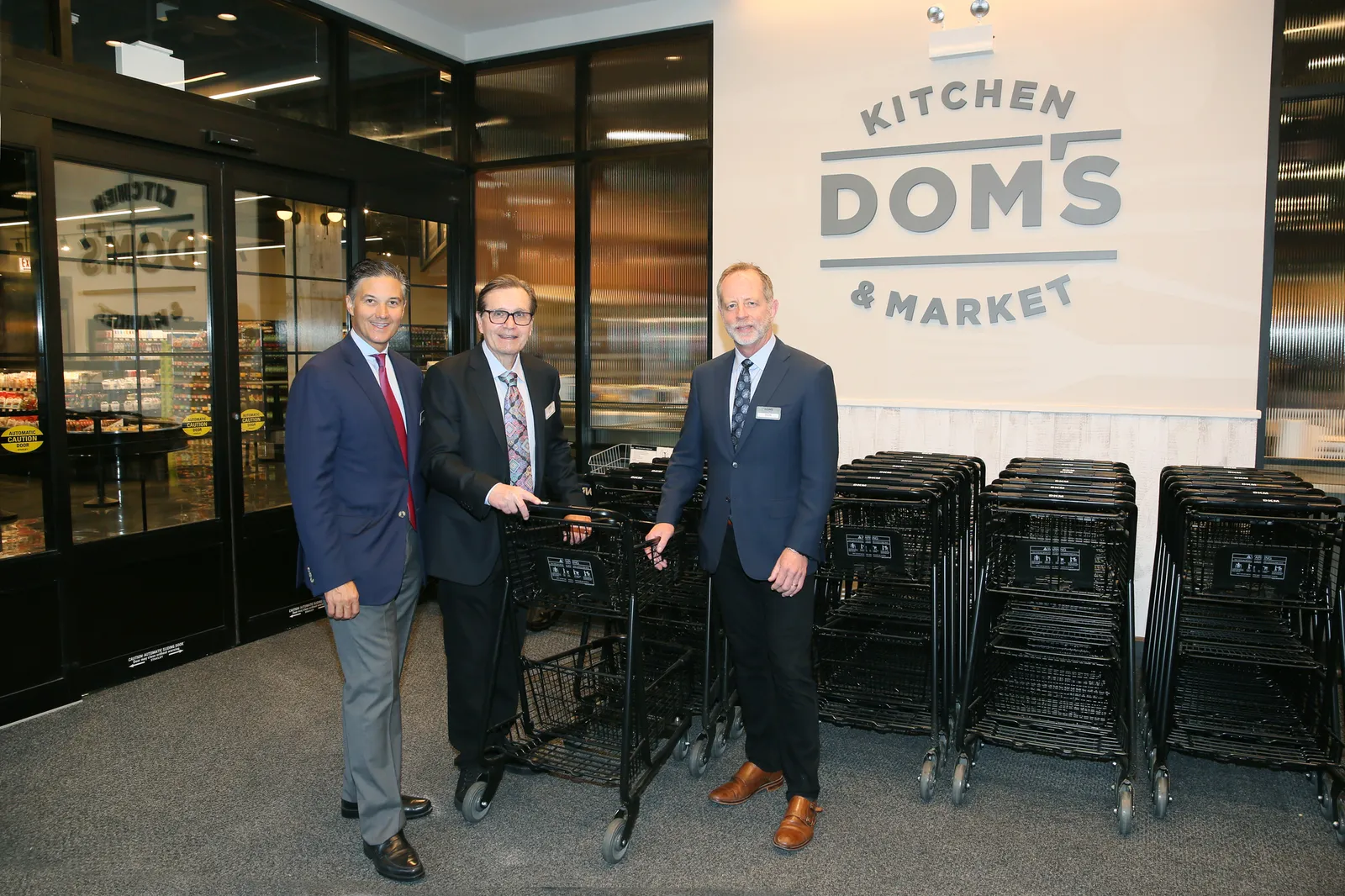
As a company that’s still in its early years, Dom’s has faced some challenges, including an unsuccessful pilot of self-checkout technology and plans for a coveted location recently falling through.
But the closely watched company remains focused on its original goal of bringing a new type of shopping and eating experience to a grocery industry that’s overflowing with competitors. With Fitzgerald fully at the helm, the chain is charting its path forward with a focus on flexibility.
Expansion and an evolving focus on foodservice
The Chicagoland grocery startup recently unveiled plans for its newest location as it plots a course to open more than a dozen stores within the next few years.
Dom’s announced at the end of last month that its third store will debut in the city’s River North neighborhood in the summer of 2024. That location will join Dom’s two other locations: a Lincoln Park store that opened in 2021 and one in the Old Town neighborhood that opened last fall.
Located at 30 West Huron Street, the upcoming store will open on the ground floor of the luxury apartment building One Superior Place, occupying a prime downtown location blocks away from The Magnificent Mile, Chicago’s premier commercial district. At 25,000 square feet, the River North store is closer in size to Dom’s Old Town store, which is 50% larger than the Lincoln Park store.
But the River North location will resemble the layout of the Lincoln Park store with The Kitchen — Dom’s foodservice and culinary offerings — situated at the center of the store, Fitzgerald said.
The Kitchen is the “heartbeat" of the shopping exploration that Dom’s aims to inspire, Fitzgerald said: “It really brings the building alive.”
What’s more, the new store on West Huron Street will provide more space for an expanded array of restaurants and other foodservice offerings. Dom’s stores currently feature proprietary restaurant brands, like The Stackup sandwich shop and Gohan sushi and poke bowls.
Fitzgerald said Dom’s is planning to build a “2.0” version of The Kitchen with its River North store.
“We really want to take The Kitchen to the next level there in River North,” he said. “You’ll have the offerings that are in Lincoln Park but we’re also working on some other offerings to take it to the next level.”
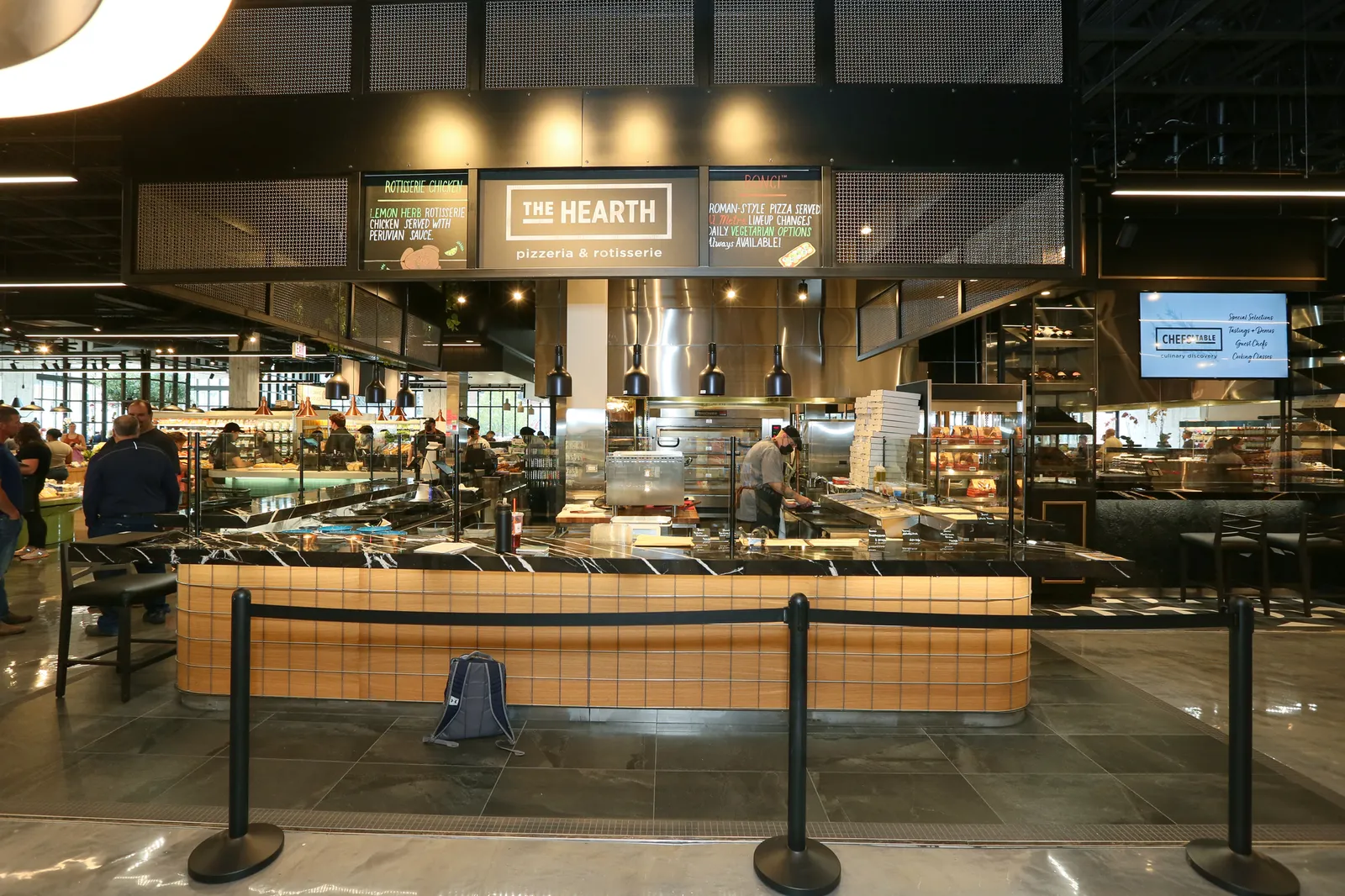
Like the first two stores, River North will also have a lineup of local vendors, including Ayo West African Foods, Eli's Cheesecake and Hexe Coffee.
While Dom’s is working toward its previously stated goal of having 15 stores by 2025, Fitzgerald said the timeline may get pushed back by a year. Plans fell through for a specific location in Fulton Market partly due to the prohibitive retrofitting costs, but Dom’s is in “hot pursuit of a number of different locations” in that neighborhood, he said.
As it plots expansion, Dom’s is focused on finding the “right spaces and markets” and has a “general map” of where future locations could go, Fitzgerald said, declining to provide more specifics.
The budding grocery chain is also eyeing expansion opportunities beyond the city limits. Fitzgerald said the company’s interest in opening stores in the suburbs stemmed from positive feedback, noting that “people [were] approaching us from the various different towns and cities with opportunities.”
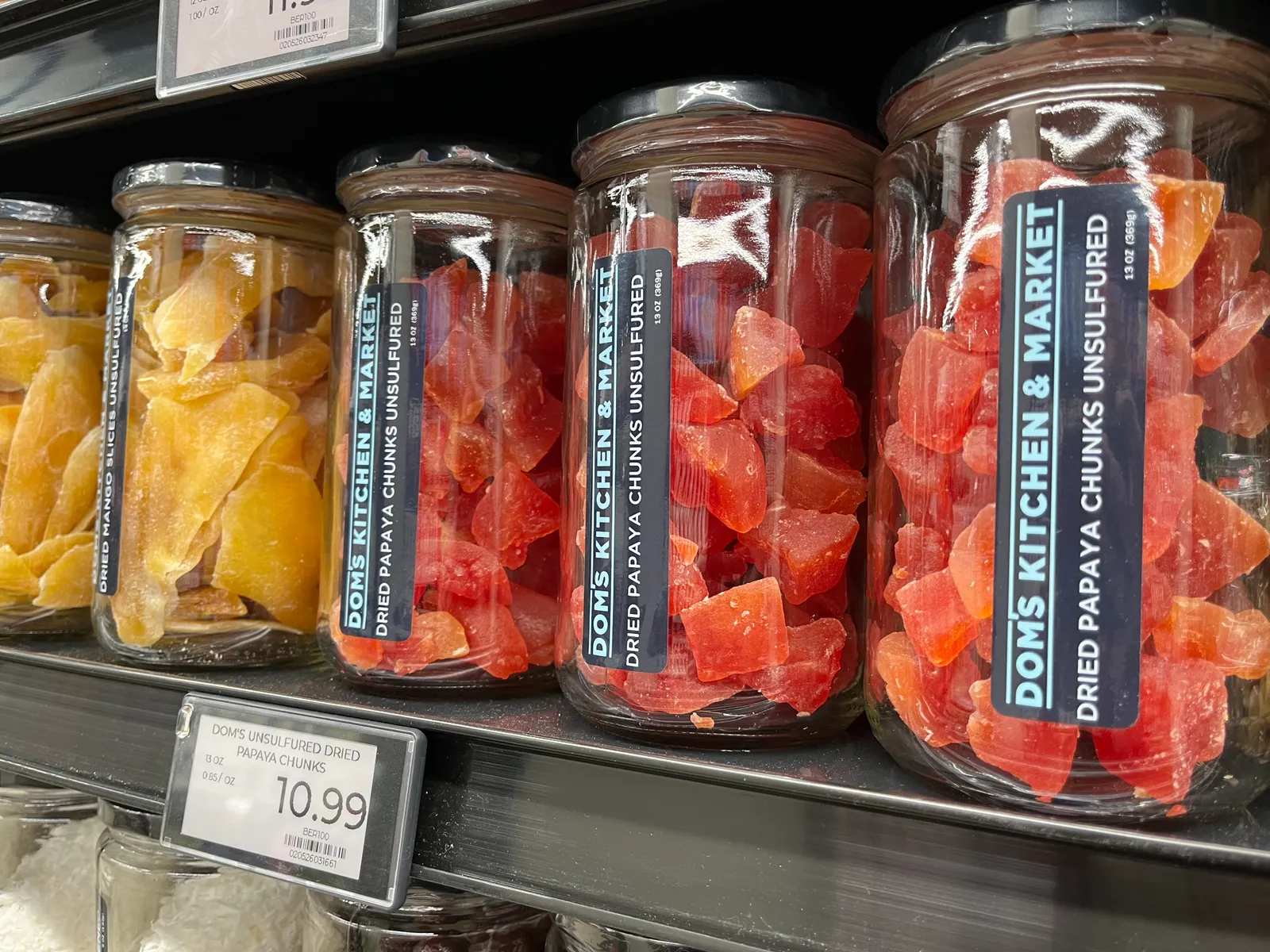
Watch and learn
The proposed Kroger-Albertsons merger poses potential disruption in the Chicago grocery landscape, including speculation about what could happen with Mariano’s, the supermarket banner started by Bob Mariano and bought by Kroger in 2015.
Fitzgerald said Dom’s is taking a “wait and see” approach to how the deal, which is currently undergoing regulatory review, could impact the company.
Along with the potential impacts of the mega-merger, Chicago is also grappling with food insecurity and access issues. Fitzgerald said Dom’s aims to assist with hunger, access and food affordability efforts by teaming up with food waste preventative company Too Good To Go to sell unsold excess food at a steep discount.
Dom’s is also especially watching how consumer behaviors evolve, noting that shopper preferences rapidly shifted during the pandemic, he said. For example, Dom’s pulled the self-checkout station option from its Old Town store shortly after opening that location due to low usage rates.
As Dom’s charts its path forward, the company is embracing being a place where people not only buy food for home, but also seek out fresh prepared meals and comfortable seating areas where they can have book clubs or dates, Fitzgerald said.



